- Home
- Dan Simmons
Black Hills Page 11
Black Hills Read online
Page 11
—I don’t know! I did not see the… the final… the ending, Tasunke Witko.
Crazy Horse throws Paha Sapa back into the hides and robes and jumps to his feet. His killing knife is in his hand and his eyes are not sane.
—You are lying to me, Black Hills. You know, but you are afraid to tell me. But you will tell me, I promise you that.
The warrior turns and stalks out. Paha Sapa does sob now, weeping into his forearm so that Limps-a-Lot and the others outside the lodge will not hear him. He did not see how long it will take for Crazy Horse to die from the bayonet wounds—and the glimpses of Crazy Horse he was able to catch showed a warrior not much older than the man who just left the tipi, a year perhaps, no more than two—but Paha Sapa did see an absolute conviction in the heart and thoughts of Crazy Horse when the war leader forced him to use his gift.
Crazy Horse is going to kill Paha Sapa whether the boy tells him his future or not.
PAHA SAPA HAS BEEN ASSIGNED a lodge separate from the village. Limps-a-Lot visits him there that night, late. Crazy Horse and his men have ridden away to their own tiyospaye, but the chief said that he would return by midday the next day, bringing Long Turd and other wičasa wakan to identify the Wasicun inside the boy and then to drive the ghost out, even if the ghost-driving-out ceremonies take weeks. Paha Sapa has been told to fast and to purify himself in the sweat lodge that has been erected near his isolated tipi.
—Grandfather, I have seen that Tasunke Witko intends to kill me.
Limps-a-Lot nods and sets his huge hand on Paha Sapa’s thin shoulder.
—I agree, Black Hills. I do not have your gift of forward- or inward-seeing, but I agree that Crazy Horse will kill you if you tell him that the wasichu will someday kill him and he will kill you if you say that they will not or even if you keep silent. He is certain that the ghost within you is Long Hair’s ghost, and Crazy Horse is afraid of it. He wants the ghost to die with you.
Paha Sapa is ashamed of his girlish tears earlier. Now he only feels empty and very young.
—What shall I do, Grandfather?
Limps-a-Lot leads him out of the tipi. Hundreds of broad strides away, the northernmost campfires of the village glow. A dog barks. Two young men on guard duty out among the horses grazing across the stream call softly to each other. An owl hoots in a cottonwood along that stream. Low clouds have moved in like a gray blanket to hide the moon and stars. Thunder continues to rumble from the south, but no rain has fallen yet. It is very hot.
Paha Sapa realizes that there are two horses standing there in the dark. One is Limps-a-Lot’s favorite, the good-running roan he calls Worm, and the other is the broad-backed white mare belonging to Three Buffalo Woman. That mare is now piled high with carefully tied robes and gear, and Worm has Paha Sapa’s own blanket, bow, quiver of arrows, lance, and other items on his back.
Limps-a-Lot points to the south.
—You must leave tonight and take Worm and the mare that Three Buffalo Woman calls Pehánska. You are to ride itokagata, south, past Bear Butte to the Black Hills. Go all the way into the Black Hills, deep into them, but travel with care—Crazy Horse’s and Angry Badger’s scouts say that white men have poured into our sacred hills during the past few moons and even built new cities there. Crazy Horse has vowed before everyone to go to the Paha Sapa next week and to kill every wasichu he finds there.
—Grandfather, if Crazy Horse and his warriors are going to the Black Hills soon, why are you sending me there? Would I not be safer if I rode north, toward Grandmother’s Country?
—You would be, and I will tell Crazy Horse that I loaned you my horses so that you could go to Grandmother’s Country.
—He will kill you for helping me, Tunkašila.
Limps-a-Lot grunts and shakes his head.
—No, he will not. It would set the bands to fighting, and Crazy Horse wants to kill wasichus by the thousand this year, not other Lakota. Not yet. And you must go to the Black Hills because there you must have your hanblečeya…. Your Vision must come to you there and nowhere else. This I know. Do you remember all that I have taught you about purifying yourself, building the sweat lodge, and singing to the Six Grandfathers?
—I remember, Grandfather. When may I return?
—Not until after your successful hanblečeya, Paha Sapa, even if that takes weeks or months. And in both going south and coming back north, travel carefully—keep the horses off ridgelines, hide in willows and streambeds when you can, act as if you are in the middle of Pawnee country. Both Crazy Horse and the wasichus will kill you on sight. Our village will be somewhere between Slim Buttes and Arikara country to the north, but be careful even to the coming in when you return…. Hide and observe the village for a day and a night and a day to be sure it is safe.
—Yes, Grandfather.
—Now go.
Limps-a-Lot swings the boy up and onto the back of Worm and hands him the hide rope for Pehánska, White Crane. The holy man peers into the midnight-black south.
—I think it will begin storming tonight and rain for many days. This is good. It will be very hard for Crazy Horse to track you, and he was never that good a tracker. But head west to where the stream runs south from Slim Buttes and stay in the river for as many hours as you can, then try to stay on the hard, rocky land. Hide during the day if you have to. Good-bye, Paha Sapa.
—Good-bye, Grandfather.
—Toksha ake čante ista wacinyanktin ktelo, Paha Sapa.
I shall see you again with the eye of my heart.
Limps-a-Lot turns and walks as quickly as he can back to the lighted village. Clucking the horses into silence, Paha Sapa turns their heads southwest and rides into the night.
10
George Armstrong Custer
Libbie, my dearest.
I have been lying here in the healing darkness thinking about how you looked that first time I met you—formally met you, since I had seen you as a little girl and even worshipped you from afar years before in Monroe—in 1862 at that Thanksgiving party at the girls’ finishing school. Your dark hair, all in perfectly formed ringlets, fell down over your bare shoulders that night. Your pale face and exposed skin glowed like ivory in the candlelight. I remember how I was stunned by the dark slashes of your eyebrows above your daunting, expressive eyes, and by how even your slightest and most demure of smiles brought out those dimples. You were twenty-one years old that autumn, and your body had ripened far from the stick-figure girl in the blue pinafore I had glimpsed on Monroe’s main streets in earlier years. The gown you wore that night to the Thanksgiving party was cut low enough for me to see your ample bosom. I could have set my hands fully around your slim waist and felt my fingertips touch.
Do you remember last autumn, when we spent our leave from Fort Abraham Lincoln in New York? We were so poor—in all my years of service and, some might say, of fame, I have never chosen to profit from my service to my country—so poor that we had to stay at the dreadful boardinghouse and take the freezing, drafty horsecars to the various receptions and dinners to which we were invited because we had no money for a cab. I had my one civilian suit. Only one. You had several lovely dresses for those balls and receptions, but they were dresses you had used and mended and made small changes on for many seasons and carried back and forth in your trunk across the prairie and continent with you many times.
You remember that forty times that cold autumn and colder winter in New York we went to see Julius Caesar performed, not because either of us liked the play that much—I grew to despise it—but because the actor and our friend Lawrence Barrett always left two complimentary tickets for us whenever he appeared. We suffered Julius Caesar forty times those cold months because it was free and gave us an excuse to leave the loud, crowded, food-smelling boardinghouse.
But do you also remember that December when, on a rare quiet night in our boardinghouse room when everyone but us seemed gone from the place, you and I lay in bed and talked about how we wished we had actually met when we
were both children?
“What would you have done with me if you’d known me when I was a wee maiden?” you asked.
“Seduced you,” I whispered. “Made love to you at once.”
And then, you remember, my darling, you asked me to shave away your glorious thatch of black hair there, using my campaign razor and the hotel shaving soap. And you remember how I lit the extra candle and set the small mirror—at your request—so that you could watch the transformation even as it took place. Oh, how you trusted me, my darling. And how you shuddered and blushed when I kissed your now pale and hairless mons and continued kissing lower.
And how, when we were in the box at yet another performance of Julius Caesar or arriving at yet another general’s or politician’s home for yet another reception—I was the Boy General, perhaps the most famous young general of the war, and much in demand, as were you for your loveliness—you would squeeze my hand without looking at me and blush most becomingly, and I would know you were thinking about the maidenly absence beneath your silk gown and petticoats. And both of us then could think only about the play or reception being over and of returning to our sacred little room at the odious boardinghouse.
My darling Libbie.
I have been thinking about the autumn three years ago, just after my Yellowstone Campaign, when you finally came out to join me at Fort Abraham Lincoln. The frame house the soldiers had built for us there was beautiful; the first real home you and I had ever occupied.
That first Saturday you were there, you and I rose before dawn and rode far west out on the Dakota plain, leaving the fort far behind even before the sun rose. You complained because decorum demanded that you ride sidesaddle, even though I know you prefer to ride like a boy. By nine a.m. we were far, far out on the prairie and we roughly followed the meanderings of that one small stream that curled east back toward Bismarck and the fort and the Missouri River, the few cottonwoods along that sad little creek the only signs of life except for the low-nibbled grass and sage and Spanish bayonet.
We came across a single bull buffalo and I told you to stay back while I shot it, but you rode along close behind, clinging tight to your saddle horn with your free hand as your horse galloped faster than any lady riding sidesaddle had a right to demand of the animal. The bull was old enough—and perhaps alone enough—that he quit his half-hearted loping within a mile and merely stood there on the prairie, head down, occasionally taking an absent-minded munch of the short-cropped prairie grass, acting as if we were no threat at all.
We both dismounted. You held the horses’ reins while I removed my custom-made Remington sporting rifle from its scabbard. There was no tree or branch to use as a support, but I went to one knee and steadied the relatively short but heavy rifle as best I could.
The Remington No. 1 Sporting Rifle had become my favorite during my Yellowstone expedition, and I’d killed antelope, buffalo, elk, blacktail deer, white wolves, geese, and prairie chickens with it at distances up to 630 yards. (I confess to you, Libbie, that some of the prairie chickens simply exploded into feathers upon the impact of the 425-gram .50-caliber bullet backed by 70 grains of black powder.) The .50–70 had allowed me to bring down forty-one antelopes at a distance of 250 yards, so I had little doubt that it would serve for this single old bull bison at less than a hundred yards.
It took only one shot to the heart. The ancient bull dropped as if eager to leave its lonely world.
When you and I rode up to the fallen beast, you said, “What will you do now, darling?” and I replied, “Oh, send some of the men out to carve up the carcass, although I fear this old fellow will be tough chewing. But the head is magnificent.”
“What would the Indians do?” you asked.
“The Indians,” I said, surprised. “You mean the Sioux or Cheyenne?”
“Yes,” you said, smiling sweetly at me as we sat there in the heat, the saddles creaking under us, flies already beginning to buzz around the dead bison’s blood.
“The Indians would immediately cut its belly open and eat all or part of the poor fellow’s liver,” I said.
You slid off your horse and looked up at me. Your face, so radiant in the clear, warm autumn sunlight, held a new kind of excitement, one I had never seen before.
“Oh, let’s do that, Autie,” you said.
I remember that I stayed mounted and just laughed. “We would both be covered with blood,” I said. “Hardly the way for the commanding officer’s wife to return from a ride during her first week at Fort Abe Lincoln. What would the men in the regiment think?”
In response you began stripping out of your clothes. I remember glancing around anxiously, but the prairie was its usual tan and barren early-autumn void. Except for a low line of willows along the creek a mile to the north, only twenty miles of mid-morning flat prairie emptiness met the eye. I dismounted and rushed to disrobe next to you.
When we were naked except for our boots (the prairie is a living pincushion of tiny cacti and not-so-tiny thorns and stickers and quick-scuttling biting things), I took my long hunting knife from its beaded scabbard and slit the bison along the length of its distended belly. The mass of organs and connecting tubules and endless yards of gray-glistening guts slid out as easily as the dumped contents of a black and hairy purse. You couldn’t believe it when I cut away the liver and held it up between us.
“Dear God.” You laughed excitedly. “It’s as large as a man’s head.”
“Larger than this man’s,” I said, and began slicing into the heavy mass. A fluid thick and black burbled up in the cuts along with the blood. “Do you want the first slice?” I asked, glancing yet again over my shoulder to make sure that we were alone and unobserved.
“No,” you said. “Do not cut it up as if we were at a table, Autie. Let us take communion here as if we were Sioux or Cheyenne.”
You took the liver—you were barely able to hold it up, I remember, and I had to help you steady it just above your face—and your perfect white teeth flashed as you bit deep. You gnawed that chunk of the old bull’s liver off and away and then chewed maniacally rather than choke. The blood and bile (or whatever that darker fluid was) spattered your chin and cheeks and bare breasts and the slight bulge of your belly.
I would have laughed then, but there was something too ceremonial, too ancient, too physical… too terrifying… in watching you take yet another bite of that liver, the blood now flowing down over your chin like a red Niagara.
Straining, your shoulders and soiled upper arms showing muscles I’d never noticed, you handed the heavy, bleeding, seeping mass to me.
I managed to chew off three heavy chunks. I usually enjoy the cooked liver from bison, antelopes, deer, or cows, tossed in flour perhaps and fried up with bacon and onions, but this raw, thick-skinned organ tasted overwhelmingly sour. There was as much of the blood and heavy liquid in my mouth as there was meat.
I did not laugh. I chewed slowly, sacramentally, and then tossed the heavy liver back into the fly-gathering pile of guts and heart and stomach and more guts.
We both drank deeply from our respective canteens then.
I looked down at us—blood everywhere in streaks and rivulets and spatters and explosive patterns across my scarred flesh and your ivory-white skin, it looked as if I were wearing red gauntlets up to the elbow—and I said, “Now what, my dearest?”
Setting your canteen carefully back on your saddle, handling it gingerly so as not to leave more bloody handprints than necessary, you said, “Can we reach that creek on one horse?”
I looked toward the meandering line of willows to the north. “On one horse?” I understood your logic then. “There aren’t many horses I would trust with that duty, but Vic is one of them,” I said, and began removing his saddle and gear.
Leaving only the saddle blanket, I swung up on Vic’s broad (but not too broad) back. The sorrel (Victory had the blaze face and white socks, you remember, my dearest Libbie) smelled the blood seeping into the ground and on us and he wa
s skittish, but I pulled hard back on the reins and told you to stand on the saddle on the ground, reach up, and I would swing you up behind me.
“No,” you said, that strange, radiant, laughingly mad and excited look on your face again, “in front of you, Autie.”
“It would be more comfortable for you riding behind me and holding on with…” I began.
You laid your breasts and face against my bare leg and thigh. “In front of you, Autie,” you whispered up. “Facing you.”
And so we rode the mile to the hidden creek. Your breasts pressed against me, and the bison’s blood flowed over them onto my chest and down. Your arms held me fiercely. In your left hand you held a wad of petticoats—our towels if we ever got to the stream.
I had Vic walking, but I spurred him to a canter and you set your hands on my shoulders and hitched yourself up higher against me, your blood-spattered white thighs rising and engulfing. I was already excited. Then you mounted me.
Your breath was hot against the side of my neck. “Faster,” you groaned.
I spurred Vic to a slow, steady, but still violent gallop. I rose and fell in you with each downward pounding of his hooves and great, heaving trunk. I held you tight with my right arm, held Vic’s reins with my left hand. The sorrel wanted to run hard. I let him.
We cried out together, I believe—both of us squeezing the other impossibly tighter and closer as we rose and fell, rose and fell to Vic’s hard gallop. We could not have been closer. Both of us threw our heads far back at the same instant, shouting at the sun.
I remember the ecstasy as being so intense that it went beyond pain. The blood smeared across us, dripping from us, flying behind us as Vic galloped, seemed appropriate. Even the sour-blood-and-bile aftertaste of the slivers of buffalo liver were part of the pain and sunlight and release—a source of unbelievable and never-to-be-recaptured strength and passion.

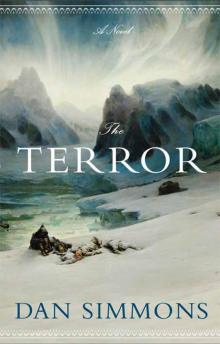 The Terror
The Terror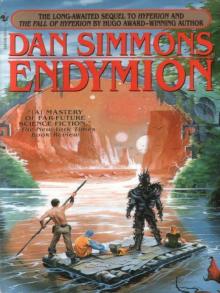 Endymion
Endymion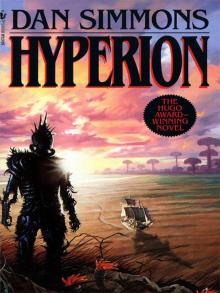 Hyperion
Hyperion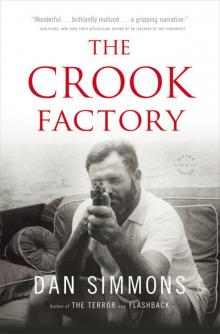 The Crook Factory
The Crook Factory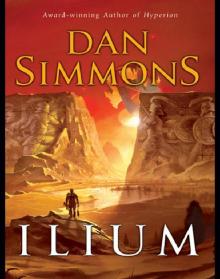 Ilium
Ilium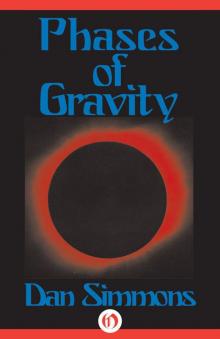 Phases of Gravity
Phases of Gravity Hardcase
Hardcase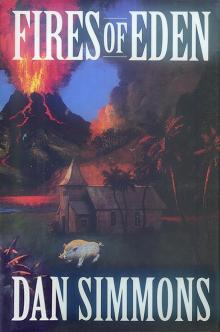 Fires of Eden
Fires of Eden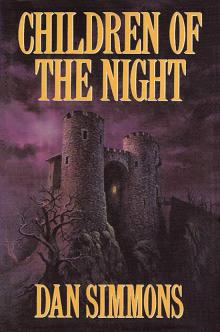 Children of the Night
Children of the Night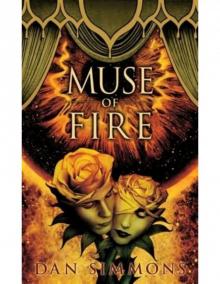 Muse of Fire
Muse of Fire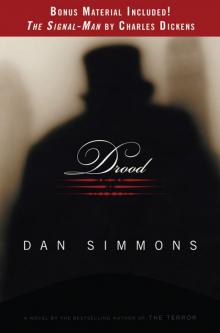 Drood
Drood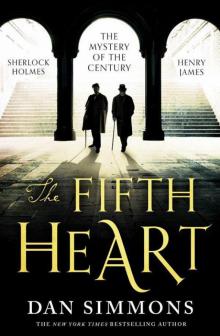 The Fifth Heart
The Fifth Heart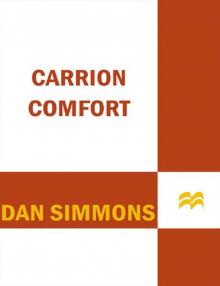 Carrion Comfort
Carrion Comfort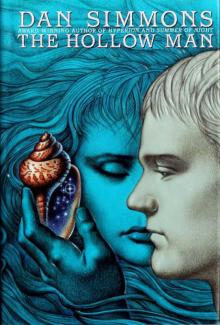 The Hollow Man
The Hollow Man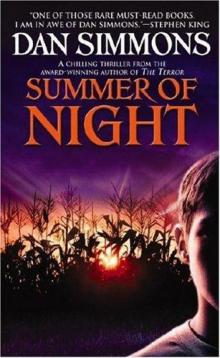 Summer of Night
Summer of Night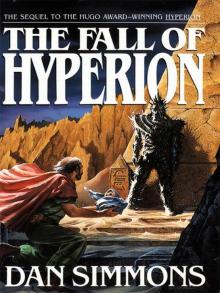 The Fall of Hyperion
The Fall of Hyperion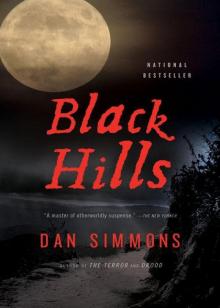 Black Hills
Black Hills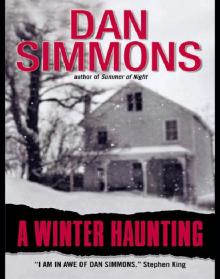 A Winter Haunting
A Winter Haunting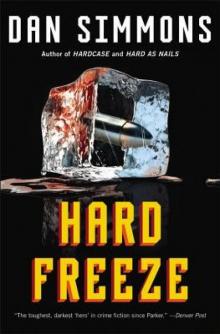 Hard Freeze
Hard Freeze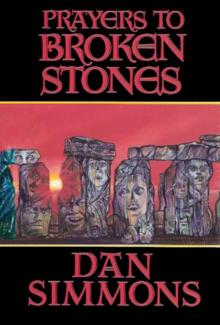 Prayers to Broken Stones
Prayers to Broken Stones Hard as Nails
Hard as Nails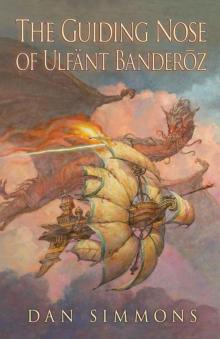 The Guiding Nose of Ulfant Banderoz
The Guiding Nose of Ulfant Banderoz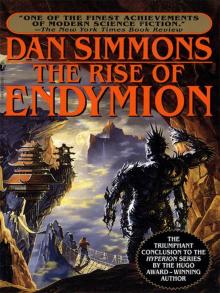 The Rise of Endymion
The Rise of Endymion Orphans of the Helix
Orphans of the Helix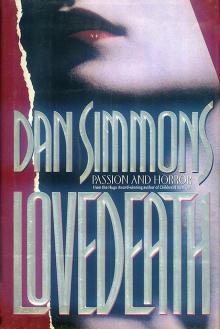 Lovedeath
Lovedeath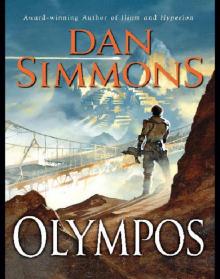 Olympos
Olympos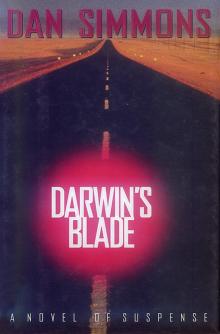 Darwin's Blade
Darwin's Blade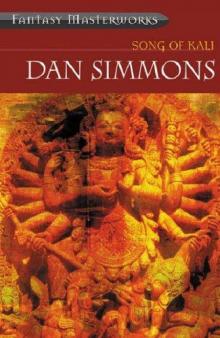 Song of Kali
Song of Kali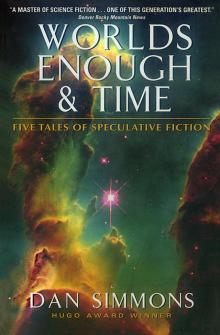 Worlds Enough & Time: Five Tales of Speculative Fiction
Worlds Enough & Time: Five Tales of Speculative Fiction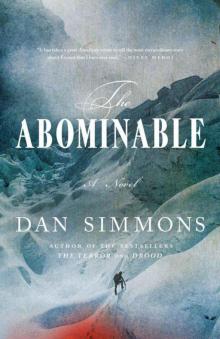 The Abominable
The Abominable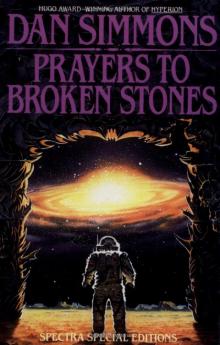 The Death of the Centaur
The Death of the Centaur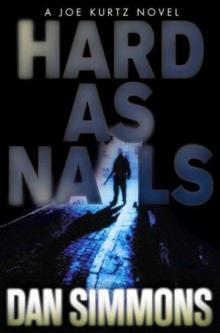 Hard as Nails jk-3
Hard as Nails jk-3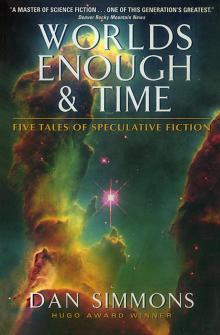 Worlds Enough & Time
Worlds Enough & Time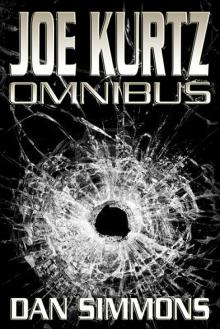 Joe Kurtz Omnibus
Joe Kurtz Omnibus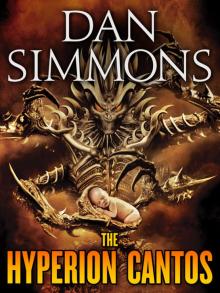 The Hyperion Cantos 4-Book Bundle
The Hyperion Cantos 4-Book Bundle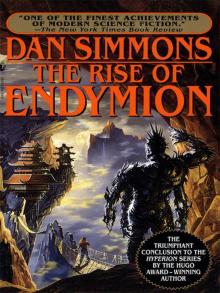 Rise of Endymion
Rise of Endymion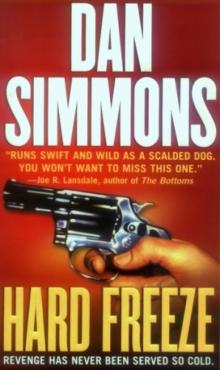 Hard Freeze jk-2
Hard Freeze jk-2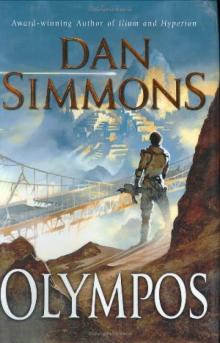 Olympos t-2
Olympos t-2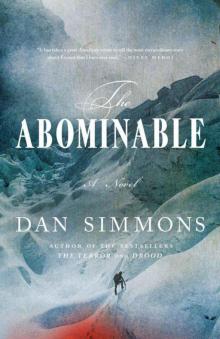 The Abominable: A Novel
The Abominable: A Novel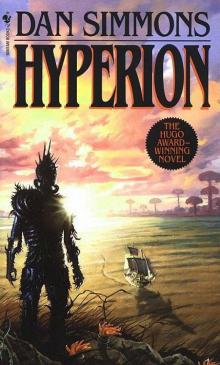 Hyperion h-1
Hyperion h-1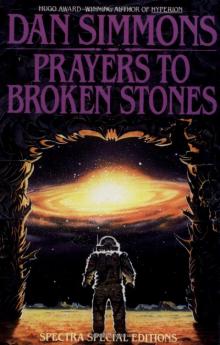 Remembering Siri
Remembering Siri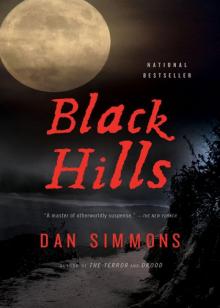 Black Hills: A Novel
Black Hills: A Novel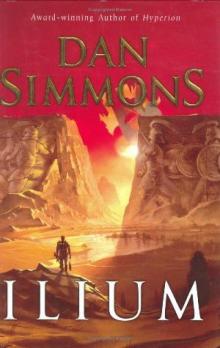 Ilium t-1
Ilium t-1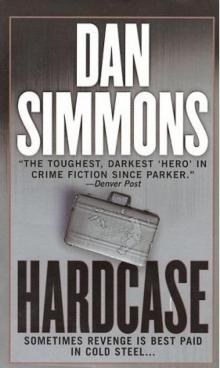 Hardcase jk-1
Hardcase jk-1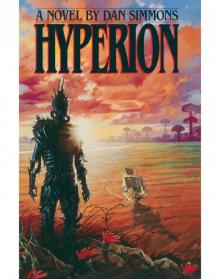 Hyperion 01 - Hyperion
Hyperion 01 - Hyperion